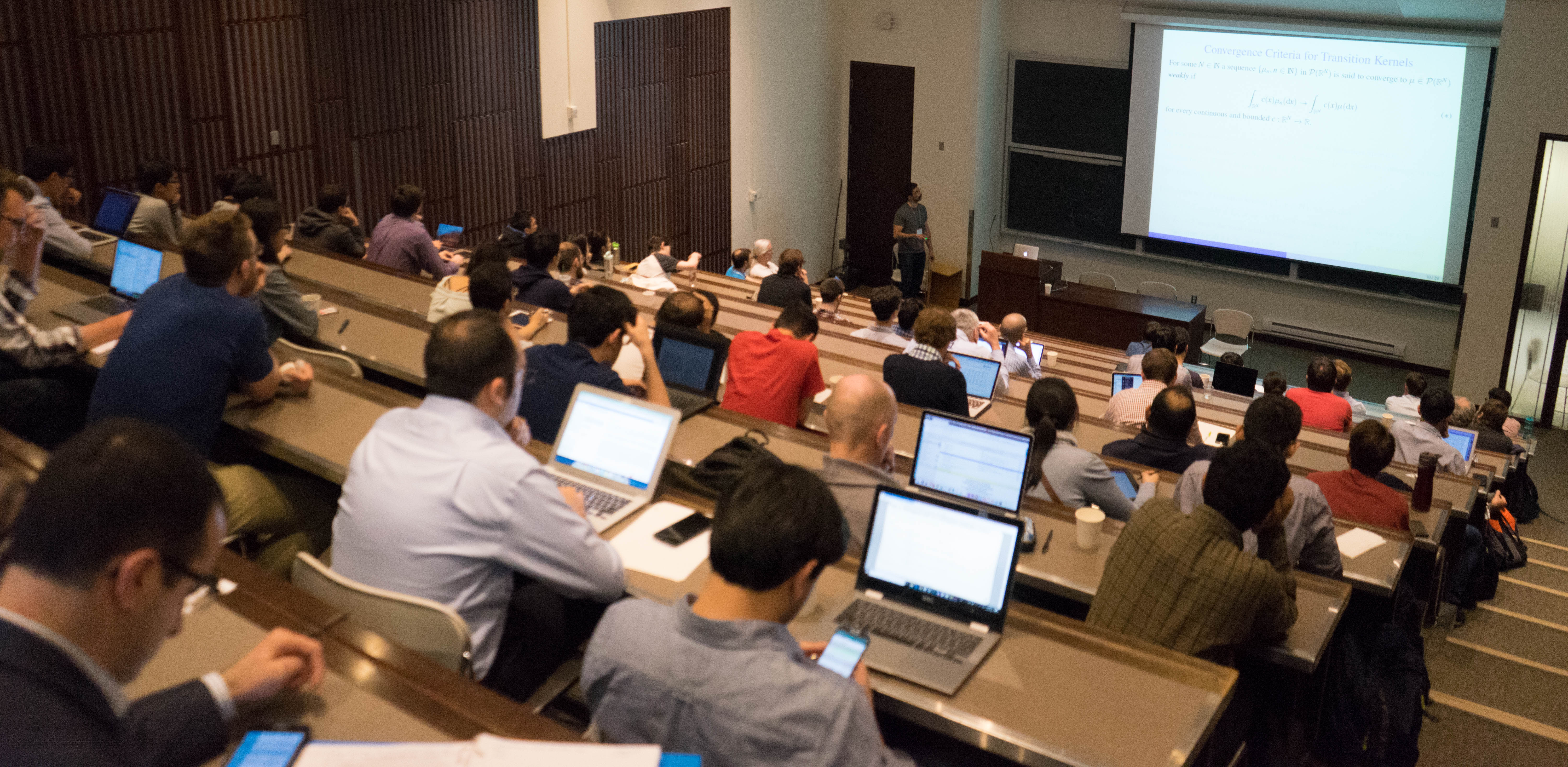
May 14, 2018
From swarming robots to electoral voting patterns, control theorists investigate the underlying principles that make artificial or natural systems function autonomously without human intervention.
More than 100 professors, graduate students and postdocs from across Canada gathered at the University of Toronto to discuss the theory and principles behind these systems and more at the biannual Meeting on Systems and Control Theory, over May 7-9 in the Bahen Centre for Information Technology and the Sandford Fleming Building. This was the eighth meeting of its kind and was organized by Professor Manfredi Maggiore of The Edward S. Rogers Sr. Department of Electrical & Computer Engineering (ECE).
“Canada is a leader in control theory, and at U of T in particular we have an impressive presence in the discipline,” said Professor Maggiore. “ECE’s Systems Control group is internationally renowned for its fundamental contributions to the field.”
The biannual meeting began in the early 2000s when Professor Maggiore met at a conference with colleagues Professor Andrew Lewis from Queen’s University and Professor Brian Ingalls of the University of Waterloo. They decided to meet periodically to informally discuss their research and the discipline in a Canadian context.
“We eventually decided to rotate these meetings between the three universities, and over the years we kept getting more and more interest from people across the country,” said Professor Maggiore. “This year we have more than 100 people here for the meeting and talks, coming from across Canada and as far as Sweden and Latin America.”
Participants heard talks from researchers at universities across Canada on topics ranging from human-machine interface theory to classical adaptive control. Students demonstrated their work during poster presentations between talks.
“The objective of the meeting is to share ideas, and to allow colleagues to present their research results in a friendly and supportive setting,” said Professor Maggiore. “The emphasis of the meeting is on research results with a fundamental theoretical component of interest to a general systems control audience.”
By providing an opportunity to share research with other control theorists, Maggiore hopes to foster collaboration between attendees and across disciplines.
“Systems and control theory is by nature interdisciplinary,” said Professor Maggiore. “Whether it is the cruise control in your car, the physiology of a human grasping an object and picking it up or climate modelling — the discipline that underlies all of these examples is control theory so it’s important that we share our work with other control theorists and with researchers in other fields.”
More information:
Jessica MacInnis
Senior Communications Officer
The Edward S. Rogers Sr. Department of Electrical & Computer Engineering
416-978-7997; jessica.macinnis@utoronto.ca